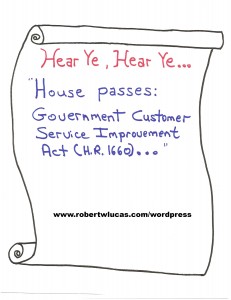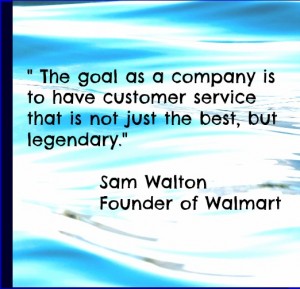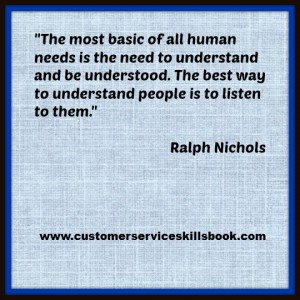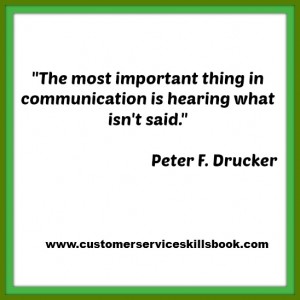Service Recovery Quote – Donald Porter
The question of “What is good customer service” has been brought up occasionally in customer service workshops that I have done. And, while there is no one answer to the query, there are certainly a number of elements that do fall into the category of “good.” For example, in the changing competitive global marketplace, good involves recognizing the diversity of the customer base and for employees to be trained on some of the common needs and wants of each group or subgroup. Additionally, they should be prepared with knowledge and skills to meet what their customer expects in a given service situation.
Ultimately, while no one is perfect, service providers should strive to go out of their way to provide a level of service that separates them from their competitors. When something goes wrong, the service provider should acknowledge it, accept the responsibility on their part or that of the organization and immediately set out to “make the customer whole” again through a planned service recovery process. This means not only providing a remedy and giving the customer what he or she paid for but also compensating them for their inconvenience or loss.
Donald Porter, a former V.P. at British Airways, captured the essence of this concept in a statement he made some years back: 
“Customers don’t expect you to be perfect. they do expect you to fix things when they go wrong.” – Donald Porter
For ideas and strategies on how to recover when service levels break down, get a copy of Customer Service Skills for Success.
Learn All About Robert C. ‘Bob’ Lucas Now
and Understand Why He is an Authority in the Customer Service Skills Industry
Robert C. ‘Bob’ Lucas has been a trainer, presenter, customer service expert, and adult educator for over four decades. He has written hundreds of articles on training, writing, self-publishing, and workplace learning skills and issues. He is also an award-winning author who has written thirty-seven books on topics such as, writing, relationships, customer service, brain-based learning, and creative training strategies, interpersonal communication, diversity, and supervisory skills. Additionally, he has contributed articles, chapters, and activities to eighteen compilation books. Bob retired from the U.S. Marine Corps in 1991 after twenty-two years of active and reserve service.
Make Money Writing Books: Proven Profit Making Strategies for Authors by Robert W. Lucas at Amazon.com.
The key to successfully making money as an author and/or self-publisher is to brand yourself and your company and to make yourself and your book(s) a household name. Part of this is face-to-face interaction with people at trade shows, library events, book readings, book store signings, blogging or guest blogging on a topic related to their book(s). Another strategy involves writing articles and other materials that show up online and are found when people search for a given topic related to a topic about which the author has written.
If you need help building an author platform, branding yourself and your book(s) or generating recognition for what you do, Make Money Writing Books will help. Bob’s popular book addresses a multitude of ideas and strategies that you can use to help sell more books and create residual and passive income streams. The tips outlined in the book are focused to help authors but apply to virtually any professional trying to increase personal and product recognition and visibility.
In my book Customer Service Skills for Success, I define customer service as “the ability of knowledgeable, capable, and enthusiastic employees to deliver products and services to their internal and external customers in a manner that satisfies identified and unidentified needs and ultimately results in positive word-of-mouth publicity and return business.”






